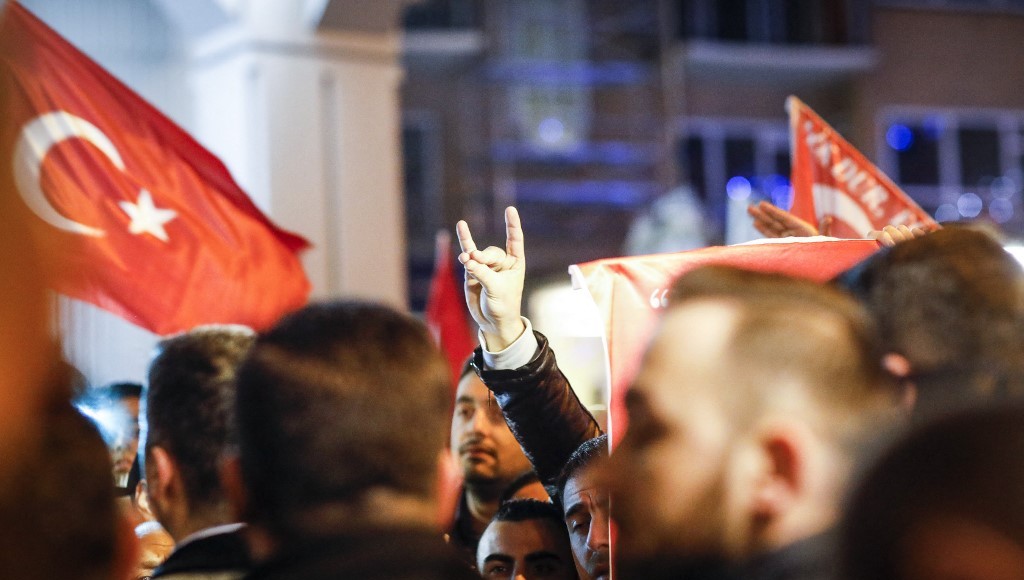Discrimination against minorities in Turkey has been “persistent and of broad scope,” with its roots in Turkish nationalism, a recent report by the Minority Rights Group International (MRG) has revealed.
The MRG is a UK-based nongovernmental organization working to secure the rights of ethnic, religious and linguistic minorities and indigenous peoples worldwide. It works with over 300 organizations in 60 countries and has consultative status with the United Nations Economic and Social Council (ECOSOC).
In its report titled “Unveiling Discrimination: Minorities in Türkiye” released on Monday, the NGO said minorities in the country face marginalization on account of not only their ethnicity, religion or language but also such factors as gender, sexual orientation, disabilities and migration status.
According to the 1923 Lausanne Treaty only Armenian Apostolic Orthodox Christians, Jews and Greek Orthodox Christians are officially recognized as minorities in Turkey, whereas the report examines not only the officially recognized minorities but all ethnic, linguistic and religious minorities in the country.
The report focused on the discrimination embedded in state policies toward minorities, which has persisted in Turkey over time and continues to this day, and says that nationalism underpinning state-minority relations can be understood as its basis.
Many talk about a rising nationalism in Turkey, particularly since the ruling Justice and Development Party (AKP) set up an election alliance with the far-right Nationalist Movement Party (MHP) before the presidential and parliamentary elections in 2018.
The AKP-MHP alliance is accused of playing on the nationalist nerves of the country by alleging that their opposition rivals support terrorist groups.
The report say there is a “notable gap” between the legal framework for the prevention of discrimination and the protection of minority rights and their practical implementation in Turkey.
Although there are no official statistics concerning minorities in Turkey, the two largest minorities demographically are Kurds and Alevis. The smallest minority group is non-Muslims, making up almost 0.4 percent of the population.
While negative perceptions, bureaucratic obstacles and security concerns persist for Alevis in the country, challenges in political participation and representation mainly affect the Kurdish population, according to the report.
Turkey is a majority Sunni country, with some in the conservative and religious population viewing Alevis as apostates; therefore, people adhering to the Alevi faith generally avoid revealing their beliefs in public out of fear of facing discrimination or social alienation.
The country has long denied Alevi demands for state recognition, and Alevi houses of worship, known as cemevis, are not officially recognized by the state and thus are not given financial assistance.
Repression against Kurdish participation and representation includes the imprisonment of political leaders, the dismissal of elected officials and the crackdown on Kurdish media outlets on accusations of links to terrorism, namely to the outlawed Kurdistan Workers’ Party (PKK), listed as a terrorist organization by Turkey and its Western allies.
The report also highlighted the exclusion, discrimination and violation of rights faced by linguistic minorities, challenges faced in education in minority languages and factors contributing to the decline of minority languages and leading to rapid Turkification, such as urban migration, the dominance of Turkish in the media and social media and educational deficits.
The MRG stated that the perceived superiority of the religion of Islam, which is rooted in the Ottoman past, and the “millet system” led to discrimination among minorities. Introduced in the middle of the 15th century, the millet system classified people into Muslims and non-Muslims, with “millet” referring to specific religious communities such as Armenian Orthodox Christians, Greek Orthodox Christians (Rums) and Jews.
Although the millet system officially ended in 1839, it had a profound impact and shaped Turkish nationalism, the report said, adding that the longstanding discrimination and marginalization of minorities has continued in the country during the 22-year rule of the AKP government.
According to the report, the AKP expressing nationalism along with support for the Muslim Brotherhood, a transnational Sunni Islamist organization founded in Egypt, the resurrection of Ottoman history revitalizing the historical perception of non-Muslims and the growing authoritarianism of the government, especially since 2011, increased unease among minorities, especially Kurds, who want to define themselves by their ethnic rather than religious identity.
The NGO further stated that the hostile atmosphere in the country, perpetuated by a culture of impunity fueled by nationalist rhetoric and polarization in recent years, resulted in a disturbingly high incidence of rights violations, including discrimination and hate speech.
“Moreover, during the recent decades of AKP rule, the constant threat of profiling hovers over any demand for fundamental rights, exacerbating the challenges faced by minorities,” the MRG said.
The report also proposed recommendations to the government and the parliament, international organizations and civil society on how to address the issues faced by Turkey’s minorities.
Enacting legislative reforms to safeguard the rights of minorities, bridging the gap between legislation and implementation, fostering constructive dialogue and engagement with minority communities to address their concerns and ensuring equitable access to public services for speakers of minority languages were among the recommendations directed to the Turkish government.
While the MRG urged international organizations to advocate for the rights of minorities in Turkey and closely monitor their situations, provide support and resources to local NGOs advocating for minority rights and engage in diplomatic dialogue with the government to address concerns regarding rights violations, it recommended that civil society organizations conduct campaigns and educational programs to inform the public about minority rights.

